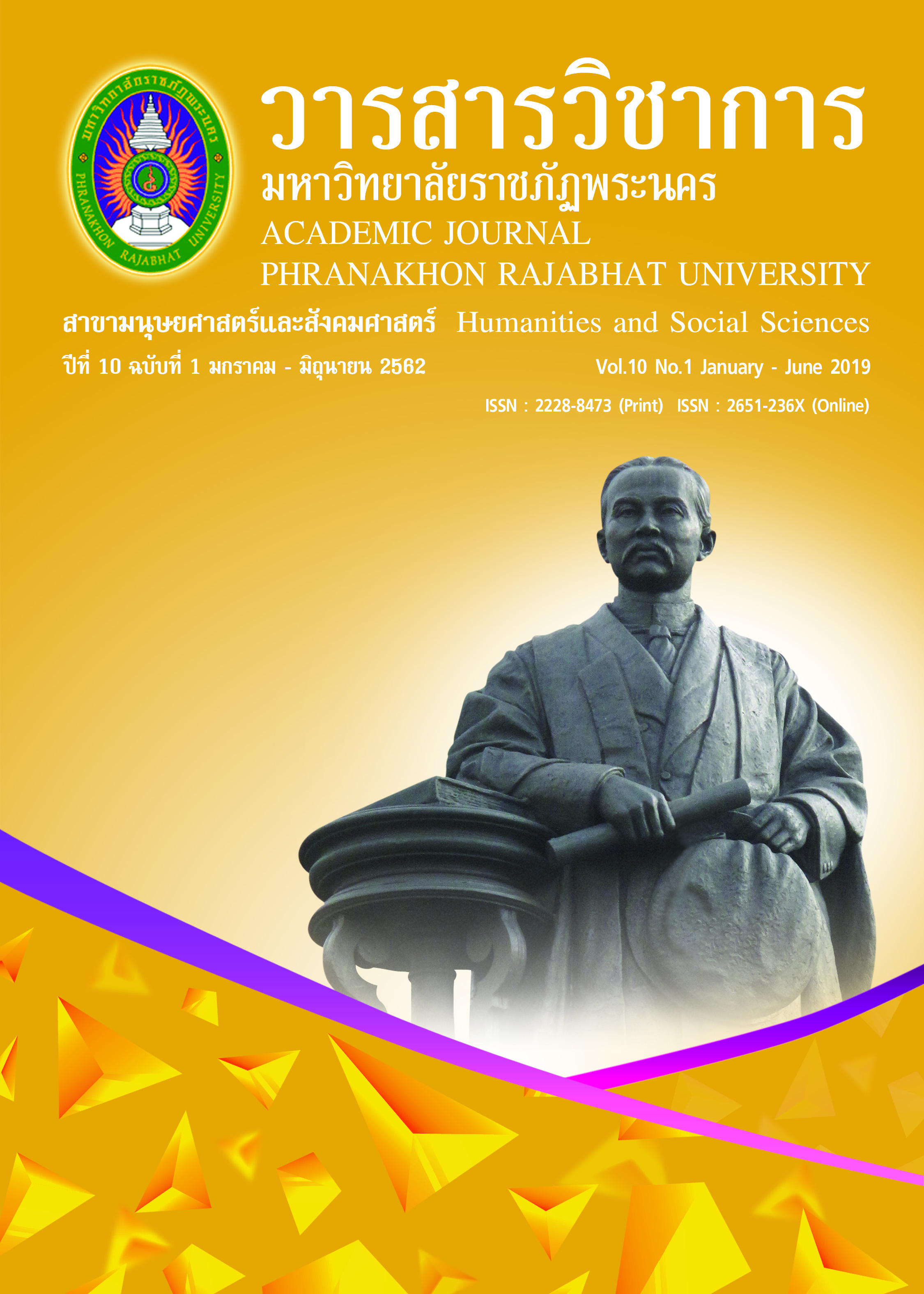IMPLEMENTING ENGLISH GAME-BASED LEARNING APPLICATIONS IN CLASSROOMS TO IMPROVE PRIMARY SCHOOL STUDENTS’ ENGLISH VOCABULARY SKILLS
Keywords:
Game-based learning, Application, Primary School Student, English Vocabulary SkillsAbstract
The aim of this study is to find the most effective teaching method to use along with English Game-Based Learning applications for teaching vocabularies in classrooms. The quasi-experimental research was employed to compare vocabulary scores among three teaching methods (Pre-teaching, Group learning, Exploratory learning). The purposive sampling technique was used to select ninety-one grade-1 students in a primary school located in Samut Prakarn Province. The three teaching methods were applied separately in three classrooms with two types of English Game-Based Learning applications. Three research hypotheses had been tested using One Way ANOVA, paired-samples t-test, and MANOVA. To find the most effective teaching method resulted from One Way ANOVA, it shows that the mean of Exploratory Learning improvement scores from application A (x̄ = 8.19, S.D. = 5.16) and B (x̄ = 10.57, S.D. = 6.00) are better than Pre-teaching (x̄ = 6.69, S.D. = 5.73 and x̄ = 6.34, S.D. = 5.54) and Group learning (x̄ = 3.59, S.D. = 7.61 and x̄ = 6.59, S.D. = 5.75). Furthermore, the result from paired-samples t-test shows that the improvement scores from application A (x̄ = 6.12, S.D. = 6.49) and B (x̄ = 7.82, S.D. = 6.02) are not different and the results from MANOVA shows that none of the improvement scores from the application A and B are influenced by the teaching methods (pairwise comparison was tested at .025 divided by 3, resulting in .008 level). The open-ended questions were made to interview the teacher for finding the teacher’s suggestions and opinions. In contrast with the results from the quantitative data analyses, the teacher believed that Pre-teaching is the proper method to use. The major findings are these followings: (1) English Game-Based Learning applications attract students’ attention and help students to learn English vocabularies, (2) Exploratory learning through Game-Based Learning applications promotes self-learning or learning by doing, (3) English Game-Based Learning application types do not affect students’ English improvement score, and (4) The teacher prefers to use the familiar teaching methods in the traditional learning environment with English Game-Based Learning applications.
References
Canto-Herrera, P. & Salazar-Carballo, H. (2010). Teaching beliefs and teaching styles of mathematics teachers and their relationship with academic achievement. Paper presented at the 2010 AERA meeting. Retrieved from https://fles.eric.ed.gov/fulltext/ED525506.pdf
Derakhshan, A. & Khatir, E.D. (2015). The Effects of Using Games on English Vocabulary Learning. Journal of Applied Linguistics and Language Research, Volume 2 (3). 39-47. ISSN: 2376-760X
Fry, G. W. & Bi, H. (2013). The evolution of educational reform in Thailand: the Thai educational paradox. Journal of Educational Administration, 51(3), 290–319. doi:10.1108/09578231311311483
Huong, L. P. H. (2006). Learning Vocabulary in Group Work in Vietnam. RELC Journal, 37(1), 105-121. doi: 10.1177/0033688206063477
Lee, J., Karlova, N., Clarke, R., Thornton, K. & Andrew, P., (2014). Facet Analysis of Video Game Genres. iSchools. doi: 10.9776/14057
OBEC. (2013) Research Report on Tablet Usage for Grade 1 students. Offce of the Basic Education Commission. Ministry of Education.
OECD. (2009). Creating Effective Teaching and Learning Environments: First Results From TALIS, Teaching and Learning International Survey [e-book]. Teaching Practices, Teachers’ Beliefs and Attitudes (pp. 87-135). Retrieved from https:// www.oecd.org/education/school/43023606.pdf
Pooja, G. (2017). Study the effect of teaching method on the academic achievement of school going children of Semiurban Area, S Schools of Lucknow city. International Journal of Home Science, 3(2), 447-453.
Squire, K., Giovanetto, L., Devane, B. & Durga, S. (2005). From Users to Designers: Building a Self-Organizing Game-Based Learning Environment. TechTrends, 49(5), 34-42, 74.
TESOL. (2013). Vocabulary and Its Importance in Language Learning. Retrieved from https://www.tesol.org/docs/books/bk_ELTD_Vocabulary_974
The Nation. (2013). Thailand ranked 55th in English profciency. The Nation. Retrieved from https://www.nationmultimedia.com/national/Thailand-ranked-55th-in-Englishprofciency-30220088.htmls
Downloads
Published
How to Cite
Issue
Section
License
"บทความวิชาการในวารสารฉบับนี้ ถือเป็นความรับผิดชอบของผู้เขียนเท่านั้น"
สงวนลิขสิทธิ์ตามพระราชบัญญัติลิขสิทธิ์




